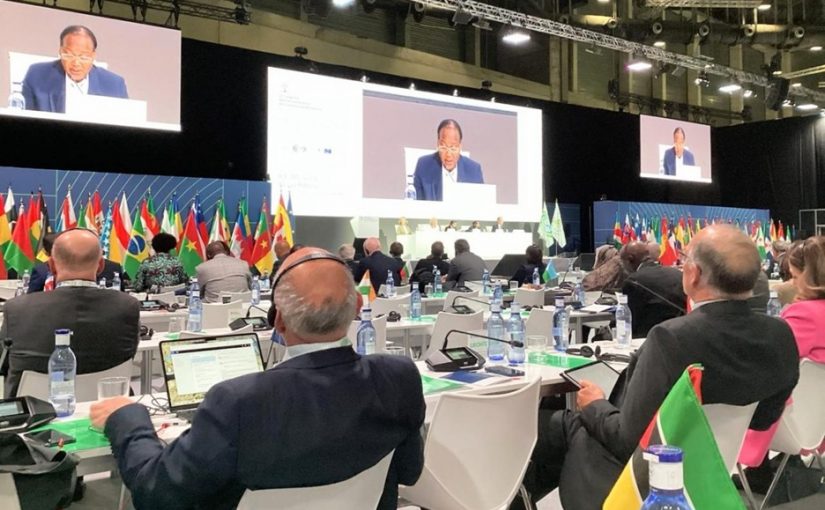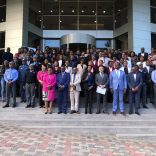Mozambique: Five cases of human trafficking recorded over first semester
Mozambique takes part in 6th Congress of World Conference on Constitutional Justice

Photo: Domingo
The chairperson of the Mozambican Constitutional Council, Lúcia Ribeiro, on Wednesday participated as keynote speaker at the 6th Congress of the World Conference on Constitutional Justice (WCCJ), in Madrid, Spain.
The theme of the congress is “The Human Rights of Future Generations”, focusing on the principle of intergenerational justice. It has the participation of 85 constitutional courts worldwide and more than 500 participants from around the world.
The conference is addressing four themes: “Preservation of natural resources and the environment”; “Preservation of the cultural heritage of humanity”; “Access to scientific knowledge and new technologies”; and “Independence of constitutional courts”.
In her presentation on “Access to scientific knowledge and new technologies”, Judge Lúcia Ribeiro highlighted several key issues. She emphasised the importance of formally recognising a right to digital connectivity. She also discussed the need for adequate instruments to preserve citizens’ right to receive accurate information through social networks.
Judge Ribeiro further noted the necessity of mechanisms to protect citizens against the misuse of surveillance technologies, data collection, or other forms of social control that may have long-term effects. She also addressed the risks posed by artificial intelligence systems that could threaten the full enjoyment of human rights by future generations. Finally, she highlighted the existence of relevant case law on these matters.
The Constitutional Court of Spain and the Venice Commission of the Council of Europe held the sixth Congress of the World Conference on Constitutional Justice (WCCJ) in Madrid, Spain, from 28 to 30 October 2025. The theme of the Congress was “The Human Rights of Future Generations”, focusing on the principle of intergenerational justice. Presidents and judges of constitutional courts and equivalent institutions from the member courts of the WCCJ shared experiences and discussed the challenges and opportunities for courts to safeguard the rights of future generations, focusing on the preservation of natural resources and the environment, preservation of humankind’s cultural heritage, and access to scientific knowledge and new technologies. In addition, a session was devoted to the independence of constitutional courts and equivalent institutions, as is the tradition for congresses of the WCCJ.
Participants of the sixth Congress were addressed by video by the presidents of the four regional courts: the Court of Justice of the European Union, the African Court on Human and People’s Rights, the Inter-American Court of Human Rights, and the European Court of Human Rights. Mr Félix Bolaños García, Minister for the Presidency, Justice and Parliamentary Relations of Spain; Mr Gianni Buquicchio, Special Representative and President Emeritus of the Venice Commission of the Council of Europe; and Mr Cándido Conde-Pumpido Tourón, President of the Constitutional Court of Spain, opened the sixth Congress.
On 30 October, following final speeches by Ms Claire Bazy Malaurie, President of the Venice Commission of the Council of Europe, and Mr Cándido Conde-Pumpido Tourón, President of the Constitutional Court of Spain, His Majesty the King of Spain, Felipe VI, officially closed the sixth Congress.












Leave a Reply
Be the First to Comment!
You must be logged in to post a comment.
You must be logged in to post a comment.